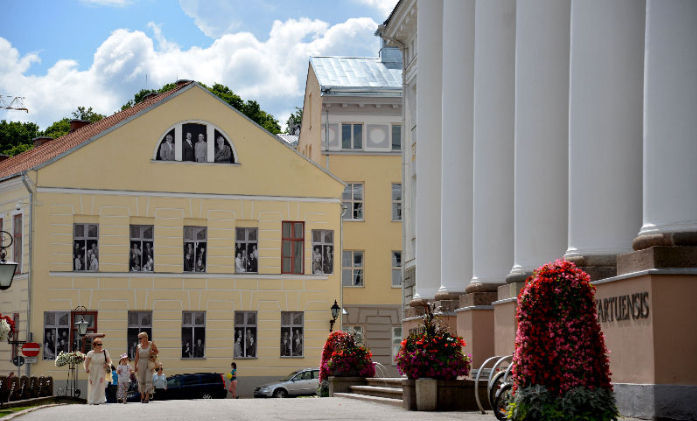Educational Institutions


The University of Tartu, founded in 1632 by Gustavus Adolphus II of Sweden, is one of the oldest universities in Northern and Eastern Europe and the biggest university in Estonia where at present more than 13, 000 students are studying, nearly a thousand foreign students among them. The university has throughout the centuries been influenced by the same forces and conditions as the Estonian territory in general; its history has been closely connected to the Swedish, Baltic, German and Russian history and also with the work of many scholars of wide renown. During the times of the Russian Empire, the university became one the most influential centres of education and scholarship in the Empire. In 1816-1855 the university astronomer F.G.W. Struve conducted research for defining the dimensions and the shape of the Earth, which had a profound impact on the scientific development of astronomy, geodesy, and cartography. A result of these studies was the Struve Geodetic Arc: a chain of survey triangulations of 2,820 km, stretching from Hammerfest in Norway to the Black Sea and passing through the Tartu observatory. In 2005, the Geodetic Arc was included in the UNESCO World Heritage List. The University of Tartu started working on the basis of the Estonian language in 1919 and consequently one of the most influential Estonian writers of the 20th century Gustav Suits became its first professor of literature in 1921. At present literature is taught and academic research on literature is conducted at various institutes of the university such as: the Institute of Cultural Research (including the Department of Literature and Theatre Studies); the Institute of Germanic, Romanic and Slavic Studies (including Classical Studies, British Studies, Germanic Studies, Slavic Studies, the departments of Scandinavian and Romanic Studies and many others.
The lifelong learning centre Tartu Folk High School frequently offers literature-related courses and creative writing programmes.
There are 30 general education schools in Tartu that provide both basic as well as general secondary education. 21 of those schools are municipal schools, 6 are private schools and 3 are state-maintained schools. The school curricula of literature were largely developed by Tartu teachers consulting with writers, scholars and literary NGOs, to focus on maintaining reading habits and developing value judgements, empathy and understanding of cultural differences, and serve as a basis for a critical approach to media. Several schools have „reading nests“ and in 2015 the city launched a new support mechanism Writers to Schools offering the schools additional funding to invite writers to perform.